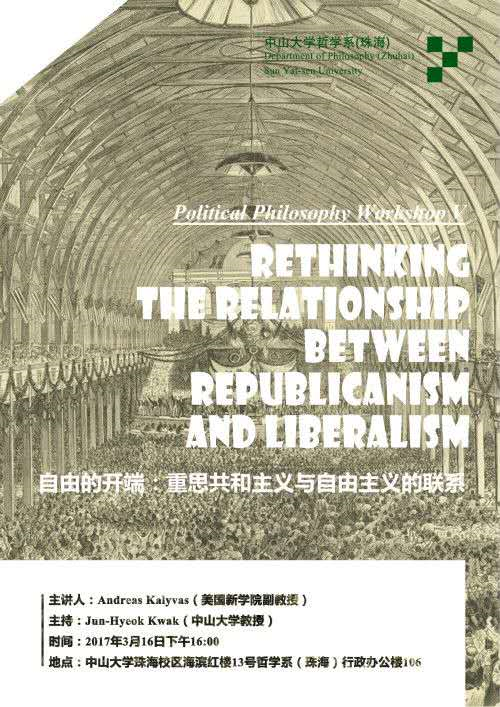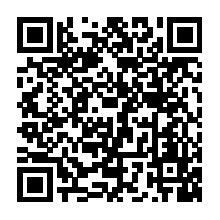5th Political Philosophy Workshop, March 16: "Liberal Beginnings: Rethinking the Relationship between Republicanism and Liberalism"

The 5th Political Philosophy Workshop
Topic: “Liberal Beginnings: Rethinking the Relationship between Republicanism and Liberalism”
Speaker: Andreas Kalyvas (Department Chair & Associate Professor, Department of Political Science, The New School)
Moderator: Jun-Hyeok KWAK (Professor, Department of Philosophy(Zhuhai), Sun Yat-sen University)
Time: 16th, March, 16:00pm
Venue: No. 13 Administrative Building, Haibin Honglou, Sun Yat-sen University, Zhuhai
Abstract
In Liberal Beginnings: Making a Republic for the Moderns (2008) Ira Katznelson and I argued that the political doctrine of liberalism originated within modern republican discussions of politics and law. We claimed that as republican thinkers sought to respond and adapt to the historical, social, economic, and intellectual transformations of a political modernity in the making they inaugurated a distinct political and constitutional discourse animated by a new set of formative liberal principles. This claim had a clearly polemical aim: to challenge one dominant approach, both historiographical and normative, which propagated a binary historical, methodological, and normative scheme, placing the two political traditions in stark opposition to one another. We rejected the view that republicanism and liberalism emerged from different well-springs, two incommensurate vocabularies that developed in rivalry, as a false antagonism. Instead, we argued that political liberalism burst from the shell of a republican chrysalis. Our claim that republicanism transmuted into liberalism had also a critical intent. We sought to question some tendencies in contemporary liberal theory and political philosophy and allude to alternative possibilities, or at least, to open up spaces for a radical rethinking of liberalism - its history, its character, its normative aspirations, and its prospects. At the time, we described one alternative in terms of a rich, thick, historically grounded, sociologically sensitive, and institutionally oriented understanding to guide modern politics. Finally, this rethinking allowed us to reflect more systematically on the broader question of modernity and politics, on the modern political imaginary. After all, as we asserted, the liberal invention of politics occurred in the attempt to create a modern republic, a republic suited for specifically modern conditions. Liberalism was the effect of this concerted effort to become modern. Liberal Beginnings, therefore, consists of these three main lines of inquiry, three general claims, and my presentation will revisit and reconsider them, first in light of some critical responses it provoked and second, in relation to certain themes and questions that were not sufficiently explored at the time, mainly those associated with democracy, colonialism, international law, and socialism. This revision concludes with some preliminary and tentative reflections on liberalism in the context of the particular challenges it faces today.


